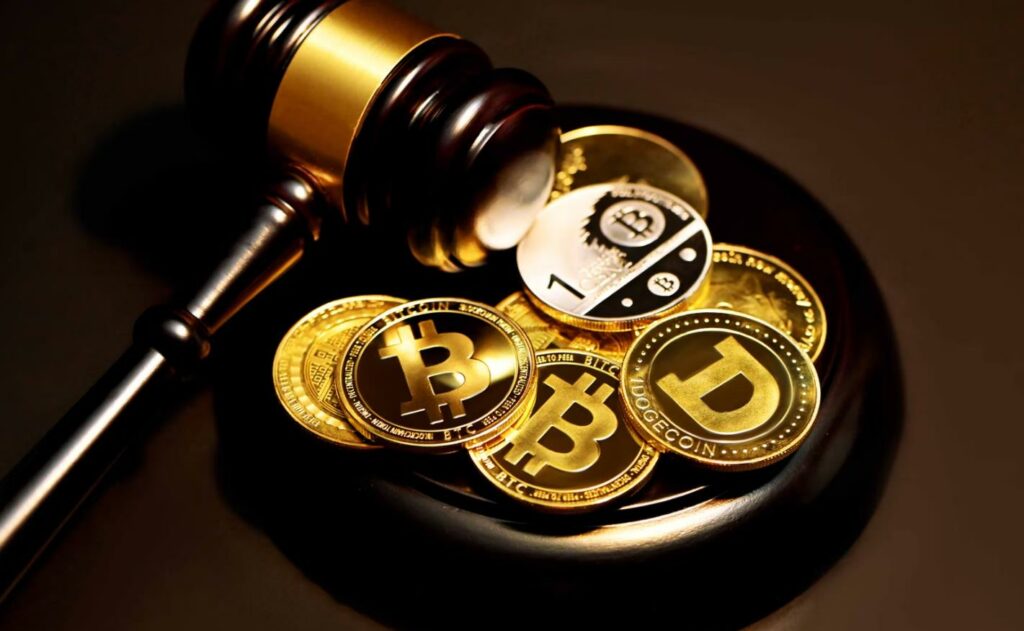Unregulated cryptocurrencies will be a thing of the past. In response to rampant cryptocurrency fraud and the staggering growth of decentralized finance (DeFi) evading regulation, U.S. regulators will take unprecedented action on the cryptocurrency industry.
This regulatory shift traces the historical pattern of regulating finance in the United States — oscillating between greater and lesser regulation, depending on whether the desire for more freedom outweighs the fear of financial instability, or vice versa.
While free market crypto enthusiasts may feel hopeless, for those willing to cooperate, there could be great benefits. If insiders speak out about illegal activity and abuse they see, they can ensure their company’s success while regulators target other bad actors.
Insiders may also be eligible for hefty rewards for whistleblowers if their companies refuse to reform and regulators are forced to take action. By whistleblower, insiders may also be protected from retaliation.
History repeats itself
Financial regulation in the U.S. has a familiar pattern — a period of relative lack of financial regulation, followed by a period of increased regulation to correct financial instability.
From the very beginning, our founders had a heated debate about the need for federal regulation of the financial system, and at the heart of that debate was the franchising of the National Bank. Andrew Jackson eventually abolished the National Bank in favor of a decentralized banking system, which then led to the “wildcat” banks known as the era of free banking and decades of financial instability, which ended with Abraham Lincoln’s cryptocurrency fraud.
More recently, starting around 1980, the wave of deregulation led to financial innovation and consolidation, but also financial instability in the form of the slow-burning savings and loan crisis of the late 1980s and early 1990s. As this trend of deregulation peaked in the Great Recession of 2007-2008, the pendulum swung back to greater regulation with the passage of the Dodd-Frank Wall Street Reform and Consumer Protection Act.
Crypto whistleblowers can help level the playing field in their industry by raising the alarm early.
This same regulatory model is playing out within the cryptocurrency industry, which until recently faced little or no regulation. Lawmakers worried about long-standing anti-money laundering and know-your-customer (AML/KYC) failures that have made the cryptocurrency industry a safe haven for drug dealers, tax evaders and terrorist financiers, thus amending the Bank Secrecy Act, Cryptocurrencies are explicitly covered.
SEC Chairman Gary Gensler recently likened the cryptocurrency revolution to a new era of wildcat banking. The SEC has taken the position that many cryptocurrencies or cryptocurrency-related products are securities, most notably with its stance on Ripple. company lawsuit. Former Commodity Futures Trading Commission Commissioner Dan Berkowitz — now the SEC’s general counsel — thinks DeFi could be outright illegal, and the Treasury Department recommends that Congress ban non-banks from issuing stablecoins, a class of crypto backed by reserve assets currency in an effort to provide price stability.
Even states are getting involved, with state attorneys general taking action against companies like NEXO, Celsius, and BlockFi for not registering in the state before offering or selling securities or goods. Clearly, the time for cryptocurrencies to be unregulated is over.
Whistleblowers can guide regulation and compliance
When the industry panics about this counter-revolution, cryptocurrency insiders who report fraud and illegal activity to the government can see a huge upside. Regulators, such as the SEC, the U.S. Commodity Exchange Commission, the Financial Crimes Enforcement Network, and the Internal Revenue Service, need whistleblowers who can provide insight into the inner workings of a company or industry sector, helping regulators educate investors, customers, and the general public when wrongdoing Spot fraud and illegal activity early, before irreparable harm is done.
Information from insiders can also help regulators target enforcement actions and rules to address the worst actors in the space, which can help prevent regulators from needlessly stifling innovation and value in the cryptocurrency industry. aspect.
In exchange for this information, whistleblowers may receive awards under various federal whistleblower reward programs, provided the whistleblower correctly submits leads that contribute to qualified law enforcement action.
Whistleblowers can be rewarded up to 30% of enforcement actions over $1 million under the SEC and CCP programs, and now in the newly enhanced AML whistleblower program. The programs also allow whistleblowers to protect their identities by submitting leads anonymously through lawyers.
For the IRS’s whistleblower program, whistleblowers can get 30 percent of at least $2 million recovered by the government. Whistleblowers have earned more than $1 billion through the SEC and CFTC programs, including a jaw-dropping $100 million in awards, and since 2007, the IRS whistleblower program alone has paid The whistleblower provided more than $1 billion.
But whistleblowers don’t just help the government. Whistleblowers can help companies stay out of the regulatory sphere by anticipating regulatory trends and future enforcement actions. Many employees are well-positioned to sound the alarm and let decision makers know that a change is needed. Whistleblowers can avoid potential problems by pointing out that companies should apply to regulators for “no-action letters” — effectively asking regulators to approve a particular product or course of action — or recommend restructuring transactions or products that are less likely to involve Supervision.
Even for companies already engaged in potentially illegal activities, the whistleblower may have the best idea of how to correct the direction or how to engage with regulators to remedy the company’s actions.
Whistleblower Protection
Given the prevalence of retaliation, becoming a whistleblower can be a dire prospect. Retaliation can take many forms, from a hostile work environment to dismissal.
Federal and state laws, including the Sarbanes-Oxley Act, the Dodd-Frank Act, and the Money Laundering Act of 2020, protect whistleblowers from retaliation. While the remedies provided by the various whistleblower statutes vary, they are designed to put the retaliated employee in the same position as if the retaliation had not occurred.
However, to obtain these protections, employees must report in a protected manner. Whistleblowers do not need to prove actual violations or even correct that fraudulent or illegal activity occurred. Instead, to encourage employees to come forward and express concerns, these laws often protect whistleblowers from retaliation if they have a “reasonable belief” that they can demonstrate that “under the same factual circumstances, a of reasonable persons would believe that the employer has violated the “law.
As the jury verdicts of many large corporate whistleblowers over the past decade have shown, retaliating employers can find themselves paying huge sums of money. However, given the complexities of whistleblower retaliation laws, employees considering reporting should seek legal advice.
Whistleblower Rescue
The cryptocurrency industry faces a steep learning curve. Traditional financial institutions have taken decades to adapt and comply with regulation, and cryptocurrencies have so far operated with little regard for compliance.
Crypto whistleblowers can help their industry level the playing field by raising the alarm early. By taking whistleblower concerns seriously, companies in the cryptocurrency industry can avoid the inevitable flurry of enforcement actions they are about to face, and save themselves time, money, and heartache.






